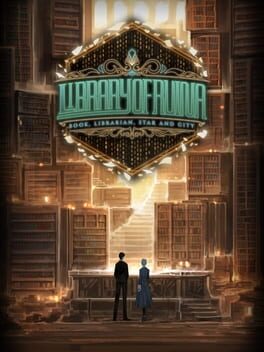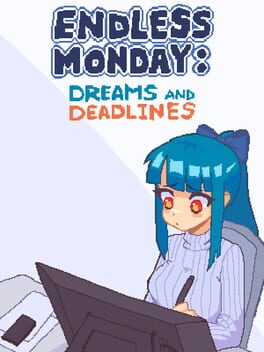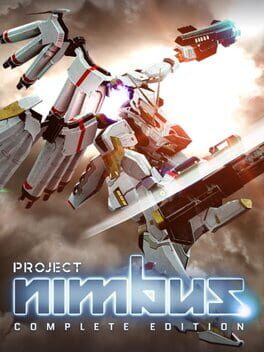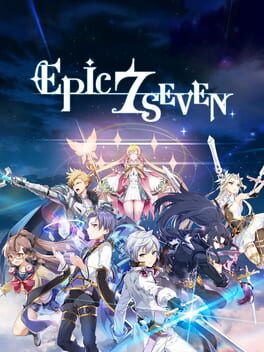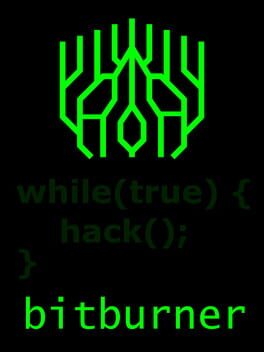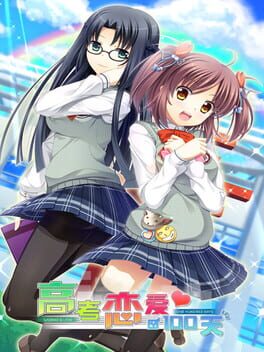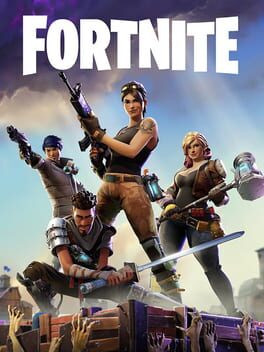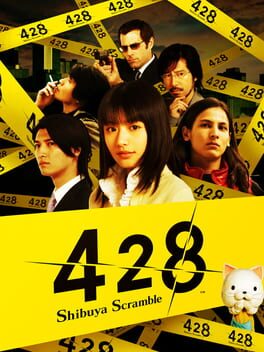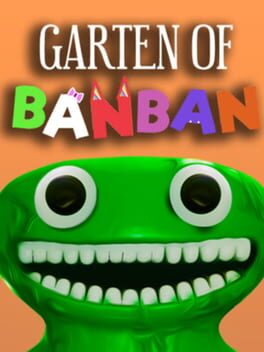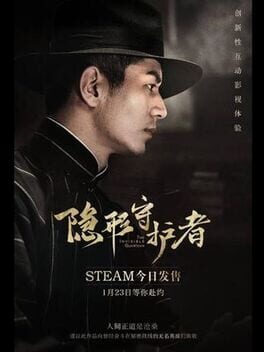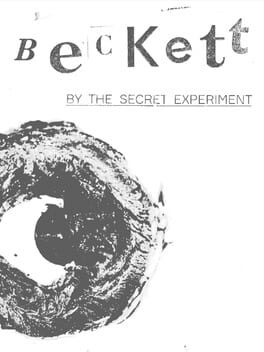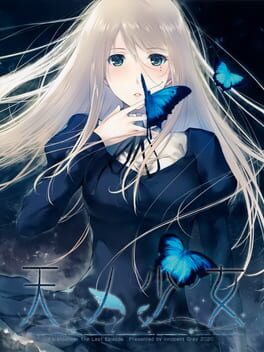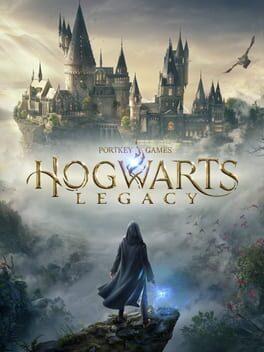akanta
2021
LoR has always been a problem child for me to form a definitive judgement on, because every time I play it my opinions vary wildly. The first time I finished the game, I went out thinking the story was melodramatic filth, the gameplay was decent but way too unbalanced, and the art/music/va was really good. The second time I finished the game, I realized the story was far better than I originally gave it credit for (and much less melodramatic than I thought), with a lot of layers of symbolism tucked beneath the seemingly matter-of-fact writing. However, I also discovered that the gameplay was far, far worse than I originally thought.
This review is based on the third time I played this game. Unlike the previous two times, I played this with mods, specifically nogrind (which vastly reduced annoyances in gameplay) and a few skin mods. And unlike the last two times, I walked away realizing that the game was, above all else, balanced. No singular element detracted from the experience or felt out of place, but every element had one or two individual flaws that prevented it from reaching its true potential.
For example, take the story. The story is, on paper, amazing. Every character is interesting and clearly disparate from each other, and are refreshingly fleshed out to be more than paper cutouts of stereotypes like in so many other games. Well, that is with one exception: Angela. Which is odd, given that she's the main female protagonist of the entire game, and ostensibly should be more three-dimensional than any other character. Yet, her characterization is notably shallow all the way through, and what is there is a medley of worn caricatures of androids wanting to be human that we've seen so many times before in every form of media imaginable. This is doubly confusing given that the other main character, Roland, is lavished on by heaps and heaps of gorgeous and sensible writing, eloquent stories, and a sense of humanity and emotionality that I rarely see in video game characters. The best parts of Ruina's story could legitimately rival not only top video game stories like Fata Morgana or Cyanotype Daydream, but even the pinnacle of literature: think Dickens, Tolstoy, Hemingway, Hardy, Flaubert, and Ellison. No, I'm not exaggerating. The strong parts of LoR are legitimately that good. Meanwhile, the weak parts of LoR's writing are slightly better than David Cage writing and on par with an average Ubisoft open world game.
Likewise, the core gameplay loop is incredible when it clicks. Satisfying, ethereal, terrifying yet exhilarating, LoR creates tension in ways no other card game could even dream of. Yet, the steps needed to make the gameplay simply click is so convoluted and needlessly frustrating that 90% of people will quit once they hit one of the many unfair difficulty walls (or, as the community likes to call it, "vertical difficulty curves"). Even I was frustrated by the later stages of the game at some bosses, and I am a veteran player that beat this damn game three times and am also using a mod specifically designed to minimize frustration and annoyances in gameplay. If I out of all players can still get frustrated, I shudder to think of the new player experience. And given that ProjectMoon has officially moved on to Limbus Company, it seems that any gameplay issues are etched in ink.
Library of Ruina, for around 1/3 of the runtime, feels like a 11/10 game, with seamless ludologic and narratologic intertwining, a story that both moves and excites, and gameplay that is simply breathless at its best. Yet, for 2/3 of the game's 80+ hour runtime, LoR is a slog, with story sections that are poorly written and gameplay segments that are poorly designed. As much as I would love to give LoR a 5 star rating for those brilliant segments alone, to be completely objective, the quality is simply not consistent enough to warrant a unhesitant endorsement. However, you should still buy it.
This review is based on the third time I played this game. Unlike the previous two times, I played this with mods, specifically nogrind (which vastly reduced annoyances in gameplay) and a few skin mods. And unlike the last two times, I walked away realizing that the game was, above all else, balanced. No singular element detracted from the experience or felt out of place, but every element had one or two individual flaws that prevented it from reaching its true potential.
For example, take the story. The story is, on paper, amazing. Every character is interesting and clearly disparate from each other, and are refreshingly fleshed out to be more than paper cutouts of stereotypes like in so many other games. Well, that is with one exception: Angela. Which is odd, given that she's the main female protagonist of the entire game, and ostensibly should be more three-dimensional than any other character. Yet, her characterization is notably shallow all the way through, and what is there is a medley of worn caricatures of androids wanting to be human that we've seen so many times before in every form of media imaginable. This is doubly confusing given that the other main character, Roland, is lavished on by heaps and heaps of gorgeous and sensible writing, eloquent stories, and a sense of humanity and emotionality that I rarely see in video game characters. The best parts of Ruina's story could legitimately rival not only top video game stories like Fata Morgana or Cyanotype Daydream, but even the pinnacle of literature: think Dickens, Tolstoy, Hemingway, Hardy, Flaubert, and Ellison. No, I'm not exaggerating. The strong parts of LoR are legitimately that good. Meanwhile, the weak parts of LoR's writing are slightly better than David Cage writing and on par with an average Ubisoft open world game.
Likewise, the core gameplay loop is incredible when it clicks. Satisfying, ethereal, terrifying yet exhilarating, LoR creates tension in ways no other card game could even dream of. Yet, the steps needed to make the gameplay simply click is so convoluted and needlessly frustrating that 90% of people will quit once they hit one of the many unfair difficulty walls (or, as the community likes to call it, "vertical difficulty curves"). Even I was frustrated by the later stages of the game at some bosses, and I am a veteran player that beat this damn game three times and am also using a mod specifically designed to minimize frustration and annoyances in gameplay. If I out of all players can still get frustrated, I shudder to think of the new player experience. And given that ProjectMoon has officially moved on to Limbus Company, it seems that any gameplay issues are etched in ink.
Library of Ruina, for around 1/3 of the runtime, feels like a 11/10 game, with seamless ludologic and narratologic intertwining, a story that both moves and excites, and gameplay that is simply breathless at its best. Yet, for 2/3 of the game's 80+ hour runtime, LoR is a slog, with story sections that are poorly written and gameplay segments that are poorly designed. As much as I would love to give LoR a 5 star rating for those brilliant segments alone, to be completely objective, the quality is simply not consistent enough to warrant a unhesitant endorsement. However, you should still buy it.
The fact that the same people who made Sumire, which had a story that I quite adore, also wrote this mess is baffling, especially considering project nimbus comes AFTER sumire. Did they somehow regress in literary skill? Because this story is trope-filled, cringey (I hate using that word), and nonsensical from start to finsih. Every character felt like some anime cardboard replacable cutout with no development and no defining or unique characteristics, to the point where I couldn't even remember their names half the time and the names were on the screen!
Of course, nobody plays mecha games for combat, which is why a game like Daemon x Machina recieved praise despite the story being universally panned as horribly-written and the stuff of generic anime light novels, much like this story. Yet, while the combat here is fine -- it's certainly passable -- it does not stand out at all.
I got it on sale for a grand total of one dollar and fifty cents, so it's hard to really complain about many details when I've been treated to worse experience by games that had 1000x the budget, 100x the developers, and 10x the price on Steam. After all, at the end of the day, this thing costs less than a medium size McDonalds fries even with no discount, and I genuinely did get some enjoyment out of it. It's too bad that enjoyment was so sparse across the runtime of this game that looking back, I don't know if it was worth it in the end.
Overall Rating: 1.5/5 (Horrendous)
Of course, nobody plays mecha games for combat, which is why a game like Daemon x Machina recieved praise despite the story being universally panned as horribly-written and the stuff of generic anime light novels, much like this story. Yet, while the combat here is fine -- it's certainly passable -- it does not stand out at all.
I got it on sale for a grand total of one dollar and fifty cents, so it's hard to really complain about many details when I've been treated to worse experience by games that had 1000x the budget, 100x the developers, and 10x the price on Steam. After all, at the end of the day, this thing costs less than a medium size McDonalds fries even with no discount, and I genuinely did get some enjoyment out of it. It's too bad that enjoyment was so sparse across the runtime of this game that looking back, I don't know if it was worth it in the end.
Overall Rating: 1.5/5 (Horrendous)
2018
I mean, what is there to say about E7? It's yet another game in the same vein as summoners war or raid shadow legends, being a turn-based hero gacha with a strong emphasis on draft-based, real time PVP. As a long-time player that made it to Emperor, I will state that E7 is among the best, if not THE best in this category of gacha, with an amazing and highly responsive dev, a dedicated and friendly community, and of course plenty of cute waifus to geek out on (adin pls marry me). Yet, my low score comes from the fact that I have gradually started to dislike this entire style of gacha (and just overall) game in general. The story is inoffensive and middling at best and downright horrific at worst, the gameplay is repetitive and tedious, and while the animations are flashy and the waifus are cute, lying beneath that is a game that is fundamentally hollow, with nothing meaningful. And that's not a fault of the devs, which as I stated earlier, are wonderful. It's a fault of this entire subgenre of gacha game design, where climbing the pvp ladder is your only objective and the entire game is predicated and revolved around said objective, from grinding artifacts and gear to make your pvp hero stronger to rolling new heroes just for pvp. Because every hero fundamentally plays the same (you literally click one of three buttons and it does an action) and there is no mechanical skll whatsoever, there is zero incentive to NOT use the most broken and overpowered hero in the game, which creates this sort of stale meta. And that is my main issue with turn-based games in general: at the end of the day, what differentiates each character from each otber? In fighting games, it's skillsets. In shooting games, it might be a gun ability. But in turn based combat, each character plays mechancially the same, even if they have different effects and looks. "Yet you like persona 5 and visual novels, akanta, what a hypocrite" you might say. Indeed I do. But said games offer more than just gameplay. It's not the main focus. In E7, there is nothing other than PVP and gameplay. It has a storyline that makes genshin seem cohesive and enough plot holes to rival David Cage games. And the visuals? They're nice, but after seeing them for the billionth time, you become accustomed to it. In fact, I would rather not see the S3 animation every time after the first, since I just feel like it is a waste of 5 seconds of my life every time I use it.
Despite my affinity for E7 and the thousands of hours I've spent on it, I unfortunately have to recommend against the game. My time with E7 has been long and storied, but as with any game, it is time to say goodbye. And, unfortunately, it was a goodbye that was a lot easier to make than I had originally imagined. So there be it. Goodbye, Epic Seven. You treated me well. If only you had been a different genre of game, I might have treated you the same.
Despite my affinity for E7 and the thousands of hours I've spent on it, I unfortunately have to recommend against the game. My time with E7 has been long and storied, but as with any game, it is time to say goodbye. And, unfortunately, it was a goodbye that was a lot easier to make than I had originally imagined. So there be it. Goodbye, Epic Seven. You treated me well. If only you had been a different genre of game, I might have treated you the same.
2021
From a learning perspective, this is undoubtedly the best way to learn scripting. However, therein lies the problem: this is meant to be educational just as much as it is meant to be fun, which means that every element revolves around teaching the user rather than allowing each element to shine independently.
This is seen in the core gameplay loop and progression. When you strip away all the programming elements, the game is hilariously cookie-cutter and bland, essentially being universal paperclips with code. The story is an afterthought, the different systems and mechanics have clunky interactions, the progression is unnatural and artificially controlled, and for people already experienced with code there is very little benefit of playing this game over the mountains of other free cookie clicker ripoffs that pollute steam like the downstream sewage of a chemical plant.
Of course, some people might argue that the act of solving problems with code and bugfixing is itself both unique and relaxing. And to that I say if you have so much fun writing JavaScript for 5 hours a day, go to leetcode or hackerrank and grind problems there. It's fundamentally the same thing, except leetcode problems are probably more complex and interesting for experienced programmers.
Overall, this is an incredible educational tool that should be used in high schools and colleges across the country. But that's all it is. It's a tool. Games are an art form. The purpose of games are not to fill some sort of functionality, but to act for the sake of games itself. By its very nature, this is not and can never be true art because it is designed with a functional objective in mind, and thus constitutes kitsch. This is not a game. This is an interactive, playable, and highly addictive JavaScript textbook. It might have a structure and form resembling games, and it might be classified as a game on steam, but those video game elements are not used to expand upon the video game form in bitburner, but to create an incentive for people to learn JavaScript.
As a game: 0.5/5 (Stay Away At All Costs)
As a learning tool: 5/5 (Flawless)
This is seen in the core gameplay loop and progression. When you strip away all the programming elements, the game is hilariously cookie-cutter and bland, essentially being universal paperclips with code. The story is an afterthought, the different systems and mechanics have clunky interactions, the progression is unnatural and artificially controlled, and for people already experienced with code there is very little benefit of playing this game over the mountains of other free cookie clicker ripoffs that pollute steam like the downstream sewage of a chemical plant.
Of course, some people might argue that the act of solving problems with code and bugfixing is itself both unique and relaxing. And to that I say if you have so much fun writing JavaScript for 5 hours a day, go to leetcode or hackerrank and grind problems there. It's fundamentally the same thing, except leetcode problems are probably more complex and interesting for experienced programmers.
Overall, this is an incredible educational tool that should be used in high schools and colleges across the country. But that's all it is. It's a tool. Games are an art form. The purpose of games are not to fill some sort of functionality, but to act for the sake of games itself. By its very nature, this is not and can never be true art because it is designed with a functional objective in mind, and thus constitutes kitsch. This is not a game. This is an interactive, playable, and highly addictive JavaScript textbook. It might have a structure and form resembling games, and it might be classified as a game on steam, but those video game elements are not used to expand upon the video game form in bitburner, but to create an incentive for people to learn JavaScript.
As a game: 0.5/5 (Stay Away At All Costs)
As a learning tool: 5/5 (Flawless)
2023
beautiful, wondorous, shallow, and futile.
Todd Howard's newest foray into vast planet-spanning stories evidently forgets that planets and stars are not the focal point of any story. They aren't living entities. They breathe life...yet it is the life itself that must be emphasized.
Starfield focuses too much on the stars, and too little on the people that inhabit them. The sidequests are vapid, the characters are generic and monotonous, the environments are sterile. Of course, as No Man's Sky shows, you don't need to have a conventional story to make a game imbuned with the richness of life and meaning, especially in a genre that exploits our idealized version of discovery and the unknown as much as space and science fiction. That being said, the ability to eschew conventionality only works with due intention, and Starfield indeed seems to attempt to embrace the paradigms of space operas that have come before at every corner. It isn't hollow because that's the point, it's hollow because (presumably) Microsoft wanted the game out the door as soon as possible.
And looking back at the concept of Starfield and its lofty ambitions, one wonders if it could have ever been even remotely good in the first place. The promises of Starfield were in its immense scale, not in the artistic ambition of the experiences that lie within. Perhaps, from that perspective, Starfield is a crowning achievement.
Unfortunately, for the thousands of planets and hundreds of unique storylines, there is not one worth exploring. Perhaps I was expecting too much from a Bethesda game. Silly me! How could I ever have thought a Bethesda game would push the medium in any substantial way? But what I was at least expecting was for Starfield to at least have a purpose. Anything more meaningful, more human, than pixels flashing on a screen while you kill unnamed evil pirate #4721 in a game with a morality system reminiscent of Bioshock's black-and-white little sisters.
Starfield does not even attempt to achieve that.
Todd Howard's newest foray into vast planet-spanning stories evidently forgets that planets and stars are not the focal point of any story. They aren't living entities. They breathe life...yet it is the life itself that must be emphasized.
Starfield focuses too much on the stars, and too little on the people that inhabit them. The sidequests are vapid, the characters are generic and monotonous, the environments are sterile. Of course, as No Man's Sky shows, you don't need to have a conventional story to make a game imbuned with the richness of life and meaning, especially in a genre that exploits our idealized version of discovery and the unknown as much as space and science fiction. That being said, the ability to eschew conventionality only works with due intention, and Starfield indeed seems to attempt to embrace the paradigms of space operas that have come before at every corner. It isn't hollow because that's the point, it's hollow because (presumably) Microsoft wanted the game out the door as soon as possible.
And looking back at the concept of Starfield and its lofty ambitions, one wonders if it could have ever been even remotely good in the first place. The promises of Starfield were in its immense scale, not in the artistic ambition of the experiences that lie within. Perhaps, from that perspective, Starfield is a crowning achievement.
Unfortunately, for the thousands of planets and hundreds of unique storylines, there is not one worth exploring. Perhaps I was expecting too much from a Bethesda game. Silly me! How could I ever have thought a Bethesda game would push the medium in any substantial way? But what I was at least expecting was for Starfield to at least have a purpose. Anything more meaningful, more human, than pixels flashing on a screen while you kill unnamed evil pirate #4721 in a game with a morality system reminiscent of Bioshock's black-and-white little sisters.
Starfield does not even attempt to achieve that.
2015
"Guys let's make a new game that is about the absurdity of China's Gaokao entrance exam system, the social alienation and lack of connections that students in modern-day China face, the abhorrent birth rate, and anime plus other pop culture as a form of both escapism and freedom from the restrictions and censorship of mundane life in China. Except fuck all that, that doesn't sell well! So despite including elements of all of those above themes in our plot (to make it appear "deep" so those who care about circlejerking obscure games regardless of quality can have something to latch onto when others question them), let's instead shoehorn in some jiraikei chuunibait aggrandizing bullshit as a 'plot' and call it a day! Surely that will work, right?"
Holy fucking shit I am about done with this genre of game and also with Chinese indies. Three incredible games in a row made me convinced that China had one of the best current indie scenes in the world but it's increasingly looking like I just managed to get lucky and picked the three ripe apples from a rotten tree.
If you want to play an actually good, no, dazzling Chinese VN filled with lovable characters, addicting gameplay, and social commentary that isn't afraid to speak far above its security clearance, go play A Blessing for the Herd. Yeah, that doesn't have an English translation. So what? The English translation for this game is so atrocious and insulting that I don't even know if it classifies as English anymore. The game is already bad enough in its native tongue, and from the few minutes that I turned on English, I shudder to think the depths of utter disgrace this game would descend to for some later scenes. To give some context, this dogshit writing I'm currently typing out at the middle of a zoom lecture in 5 minutes where I forget to split infinitives and where a single run-on sentence is an entire paragraph is infinitely better prose than ANY line of dialogue in this entire game.
This game is also very bad for other reasons regarding Chinese current politics and some stupid philosophy and edgy shit they put in because subahibi is now apparently part of the official tumblrcore™ canon. The philosophy is based on teachings of Confucianism and Buddhism (presumably both due to the need to appease all groups in China) and is about as insightful as the rest of the damn game.
That being said, I'll save all that for an in-depth review. This game is just so consistently awful and unbelivably tone-deaf that it collapses under its own weight with the absolute lack of any moral spine or narrative structure. As a result, it serves to me as the ultimate canary in the coal mine for the future of indie gaming, where metatextual references put in for the sole purpose of increasing the quirky meter and performative beige bullshit that says absolutely nothing while doubling the game's runtime becomes hallmarks of "good design." There's just so much to talk about that is bad in this game and even greater potential that was completely wasted in the meandering sea of chemistry booklets and childhood romances that compose this score to an AJR soundtrack.
Recommended for theater kids who self-diagnose themselves with multiple personality disorder, pepper every conversation with quotes from Sylvia Plath, and consider themselves worldly and committed to decolonialization by looking at the front page of Jacobin magazine once a month with an adblocker and VPN turned on to South Africa.
Holy fucking shit I am about done with this genre of game and also with Chinese indies. Three incredible games in a row made me convinced that China had one of the best current indie scenes in the world but it's increasingly looking like I just managed to get lucky and picked the three ripe apples from a rotten tree.
If you want to play an actually good, no, dazzling Chinese VN filled with lovable characters, addicting gameplay, and social commentary that isn't afraid to speak far above its security clearance, go play A Blessing for the Herd. Yeah, that doesn't have an English translation. So what? The English translation for this game is so atrocious and insulting that I don't even know if it classifies as English anymore. The game is already bad enough in its native tongue, and from the few minutes that I turned on English, I shudder to think the depths of utter disgrace this game would descend to for some later scenes. To give some context, this dogshit writing I'm currently typing out at the middle of a zoom lecture in 5 minutes where I forget to split infinitives and where a single run-on sentence is an entire paragraph is infinitely better prose than ANY line of dialogue in this entire game.
This game is also very bad for other reasons regarding Chinese current politics and some stupid philosophy and edgy shit they put in because subahibi is now apparently part of the official tumblrcore™ canon. The philosophy is based on teachings of Confucianism and Buddhism (presumably both due to the need to appease all groups in China) and is about as insightful as the rest of the damn game.
That being said, I'll save all that for an in-depth review. This game is just so consistently awful and unbelivably tone-deaf that it collapses under its own weight with the absolute lack of any moral spine or narrative structure. As a result, it serves to me as the ultimate canary in the coal mine for the future of indie gaming, where metatextual references put in for the sole purpose of increasing the quirky meter and performative beige bullshit that says absolutely nothing while doubling the game's runtime becomes hallmarks of "good design." There's just so much to talk about that is bad in this game and even greater potential that was completely wasted in the meandering sea of chemistry booklets and childhood romances that compose this score to an AJR soundtrack.
Recommended for theater kids who self-diagnose themselves with multiple personality disorder, pepper every conversation with quotes from Sylvia Plath, and consider themselves worldly and committed to decolonialization by looking at the front page of Jacobin magazine once a month with an adblocker and VPN turned on to South Africa.
2018
Beefstrong is one of those obscure indie developers that, to be honest, should stay obscure. And that's not meant in a bad way. But the way Beefstrong makes games and the visual identity and the design and EVERYTHING about Beefstrong games simply can not work in the mainstream games industry. It's so novel, so unique, so radically different that there is no coterminous creation in the realm of 3d space. It's unabashed in its identity, and that naturally makes it into a marmite-like product, except in this case the vast majority of people will walk away in the first 10 minutes, confused about its appeal, and the remaining 5% of people will fall madly in love with it.
I'm in the latter group. If I wasn't trying to be objective here, this -- along with any other Beefstrong game -- would be an easy 5/5. Yes, it's a crudely-made game with a hilariously low budget. Yet, there is a notion of artistic merit here that is severely lacking from the majority of the games industry. These small, undiscovered passion projects are amongst my favorite in gaming -- and Beefstrong does passion projects better than almost anyone else. '
A while ago there was an Atlantic oped that game shouldn't have stories, as they are the "medium of material". THIS is the perfect poster child for that line of thought. This is a game obsessed with material, and what emerges is an incredibly cohesive creative vision.
Overall Rating: 4/5 (Masterpiece)
on a side note, this also reminded me a bit of Mary Flanagan's criminally underrated 2003 game [domestic]
I'm in the latter group. If I wasn't trying to be objective here, this -- along with any other Beefstrong game -- would be an easy 5/5. Yes, it's a crudely-made game with a hilariously low budget. Yet, there is a notion of artistic merit here that is severely lacking from the majority of the games industry. These small, undiscovered passion projects are amongst my favorite in gaming -- and Beefstrong does passion projects better than almost anyone else. '
A while ago there was an Atlantic oped that game shouldn't have stories, as they are the "medium of material". THIS is the perfect poster child for that line of thought. This is a game obsessed with material, and what emerges is an incredibly cohesive creative vision.
Overall Rating: 4/5 (Masterpiece)
on a side note, this also reminded me a bit of Mary Flanagan's criminally underrated 2003 game [domestic]
2017
A Circle comes from the sky; it has happened before, but for mincemeat, only once.
It was too late; it was all a play. In the waters of the aspen's gaze, stood only the cars and NickEh30. One blooming with the joys of nature, exploding with the sprouts of yarrow and sage and hollyhock. And one decaying into the midst of time, painting the picturesque, lush-green tapestry into streaks of fiery desperation, each stroke a story of loss. The forest itself were just rows of bountiful green lines interspersed with thousands of angry red circles, their shape of which was not-so-quite circular. And after that--darkness. The Circle was coming. Pitch-black, perfect solitude, tinted with the glint of a lavender sky.
There was nothing NickEh30 could have done. Perhaps it was at the tender age of 14, when he first heard the words "I'm from the government and I'm here to help", deracinated from his motherland to fight for a fortnight in an exotic land. Perhaps perhaps perhaps. Or was it when he ran away from the gunfight so many days ago? Whatever. The Circle was coming. There was nothing he could do anyways, with only a rare Stone's Burst Assault Rifle and 70 pieces of wood. Not enough to build a trench for the night, or a pile of stairs to hide behind, or anything really. Not that he needed to, anyways: The Circle exterminated all. Perhaps. The only thing that remained were regrets of the past, of memories forgotten in ennui and longing.
Perhaps. In Tenebrae comes Strepitus. Look up at the sky--can't you see it? And as NickEh30 ducked from the sound of lightning derooting oak, he took a final coup d'oeil at the interior of his resting place.The Circle was coming. It was here, at the intersection between idyll and oblivion, passivity and desperation, that NickEh30 first saw the sign.
"Welcome to Loot Lake"
It was too late; it was all a play. In the waters of the aspen's gaze, stood only the cars and NickEh30. One blooming with the joys of nature, exploding with the sprouts of yarrow and sage and hollyhock. And one decaying into the midst of time, painting the picturesque, lush-green tapestry into streaks of fiery desperation, each stroke a story of loss. The forest itself were just rows of bountiful green lines interspersed with thousands of angry red circles, their shape of which was not-so-quite circular. And after that--darkness. The Circle was coming. Pitch-black, perfect solitude, tinted with the glint of a lavender sky.
There was nothing NickEh30 could have done. Perhaps it was at the tender age of 14, when he first heard the words "I'm from the government and I'm here to help", deracinated from his motherland to fight for a fortnight in an exotic land. Perhaps perhaps perhaps. Or was it when he ran away from the gunfight so many days ago? Whatever. The Circle was coming. There was nothing he could do anyways, with only a rare Stone's Burst Assault Rifle and 70 pieces of wood. Not enough to build a trench for the night, or a pile of stairs to hide behind, or anything really. Not that he needed to, anyways: The Circle exterminated all. Perhaps. The only thing that remained were regrets of the past, of memories forgotten in ennui and longing.
Perhaps. In Tenebrae comes Strepitus. Look up at the sky--can't you see it? And as NickEh30 ducked from the sound of lightning derooting oak, he took a final coup d'oeil at the interior of his resting place.The Circle was coming. It was here, at the intersection between idyll and oblivion, passivity and desperation, that NickEh30 first saw the sign.
"Welcome to Loot Lake"
As much as I love visual novels like Sakura no Toki, I would never recommend them to someone unfamiliar with the genre, or even someone who has played vn-adjacent titles such as planescape torment, 13 sentinels, library of ruina, kentucky route zero, or disco elysium. Many visual novels nowadays try to exclusively appeal to heavy visual novel readers, using tropes and references that people in the community can understand and enjoy, but often causes people outside the community to be alienated by.
Not 428. In fact, it's probably the single most mainstream-accessible visual novel I've ever seen, even more than visual novels that have actually found mainstream success such as ace attorney or DDLC. And unlike those two, it never sacrifices its writing quality or charm to do so.
Koichiro Ito could write Her Story, but Sam Barlow could never write 428: Shibuya Scramble.
Not 428. In fact, it's probably the single most mainstream-accessible visual novel I've ever seen, even more than visual novels that have actually found mainstream success such as ace attorney or DDLC. And unlike those two, it never sacrifices its writing quality or charm to do so.
Koichiro Ito could write Her Story, but Sam Barlow could never write 428: Shibuya Scramble.
2023
TW: war crimes
The Invisible Guardian tries to sympathize with both the Chinese and Japanese side of WW2 in a way that makes both sides look foolish. and, perhaps, that is the point. Yet, it's important for a game this overtly political tio take a side. As a Japanese person, I went into this expecting a searing (and deserved) critique of Japanese atrocities during WW2, or a polemic introspection at China's own actions during wartime...and left with none of those. It's a take-four jumble bag of half-baked ideas, interesting characters ruined by nonsensical development and poor execution, and a FMV visual novel format that feels simultaneously antiquated and too modern. With unstable, purple prose excessive yet lilliputian, and a plot that seems to be unsure of itself at all times, The Invisible Guardian limpers its way to its disastrously-written finish line worse off than it started, and it didn't start well.
There are far better games about the Sino-Japanese war with actually believable characters, a well-written plotline with emotional depth, and an aura of maturity that actually gives gravity to the sensitive nature of the topics covered, all with one-tenth of the attention this game got in the Asia region upon release. From both Chinese developers and Japanese developers. Covering a topic as raw and sensitive, even to this day, as the Sino-Japanese War requires extensive gracefulness and creative clarity, and there was dialogue and conversations to be had about many of the themes touched upon in this game, especially when it came to the idea of Japanese forgiveness and whether that is even possible, as well as the commonalities between the two sides and the lack of humanity both sides displayed towards each other, something that is rarely touched upon in video games covering this topic. Yet, on account of the xianxia-levels of writing on display here, any dialogue to be had here is completely and perfectly eradicated.
Oh yeah, did I mention this was supposed to be some grand spy thriller about some quadruple agent? Yet, like all other facets of this game, the spy thriller part is completely butchered by the loose and unclarified writing on display. Zero mystique, zero intensity, zero "thrill" in the thriller part. The idea of multiple factions: the communists, nationalists, seperatists, the Japanese, etc. all vying for power and you having the ability to betray all of them is certainly interesting, if not wholly original. Unfortunately it is just an idea, and a good idea is nothing without good interpretation, imagination, and elaboration. This game fails on all of those fronts to the fullest extent a game can fail, and it is honestly baffling how a game like this can be so well-recieved in China, Japan, and even by the few Western game journalists who have played it.
This game will likely never be translated or ported out of China and Japan, and that is a marvelous thing. Because, to be honest, it should have never been written in Chinese and translated to Japanese in the first place. It is, without mincing words, a full affront to the senses, simultaneously offensive to the practicum of art as it is to the Chinese -- or, for that matter, the human -- sense of morality. Perhaps I am missing something crucial, in fact, probably I am missing something crucial. But, unless I eventually replay it and change my mind, this game in my books is an absolute failure and a shame to the smaller, far-better Chinese indie games it stole the spotlight from, the time of the players who play this, and most importantly, the memories of the victims of that disasturous and brutal war.
Instead of giving attention to this, there's plenty of brilliantly-written Chinese visual novels that deserve all the attention in the world. The Chinese visual novel scene is highly imaginative and bursting with talent; unfortunately, it's hidden behind filth like this.
Overall Rating: 0.5/5 (Stay Away At All Costs)
The Invisible Guardian tries to sympathize with both the Chinese and Japanese side of WW2 in a way that makes both sides look foolish. and, perhaps, that is the point. Yet, it's important for a game this overtly political tio take a side. As a Japanese person, I went into this expecting a searing (and deserved) critique of Japanese atrocities during WW2, or a polemic introspection at China's own actions during wartime...and left with none of those. It's a take-four jumble bag of half-baked ideas, interesting characters ruined by nonsensical development and poor execution, and a FMV visual novel format that feels simultaneously antiquated and too modern. With unstable, purple prose excessive yet lilliputian, and a plot that seems to be unsure of itself at all times, The Invisible Guardian limpers its way to its disastrously-written finish line worse off than it started, and it didn't start well.
There are far better games about the Sino-Japanese war with actually believable characters, a well-written plotline with emotional depth, and an aura of maturity that actually gives gravity to the sensitive nature of the topics covered, all with one-tenth of the attention this game got in the Asia region upon release. From both Chinese developers and Japanese developers. Covering a topic as raw and sensitive, even to this day, as the Sino-Japanese War requires extensive gracefulness and creative clarity, and there was dialogue and conversations to be had about many of the themes touched upon in this game, especially when it came to the idea of Japanese forgiveness and whether that is even possible, as well as the commonalities between the two sides and the lack of humanity both sides displayed towards each other, something that is rarely touched upon in video games covering this topic. Yet, on account of the xianxia-levels of writing on display here, any dialogue to be had here is completely and perfectly eradicated.
Oh yeah, did I mention this was supposed to be some grand spy thriller about some quadruple agent? Yet, like all other facets of this game, the spy thriller part is completely butchered by the loose and unclarified writing on display. Zero mystique, zero intensity, zero "thrill" in the thriller part. The idea of multiple factions: the communists, nationalists, seperatists, the Japanese, etc. all vying for power and you having the ability to betray all of them is certainly interesting, if not wholly original. Unfortunately it is just an idea, and a good idea is nothing without good interpretation, imagination, and elaboration. This game fails on all of those fronts to the fullest extent a game can fail, and it is honestly baffling how a game like this can be so well-recieved in China, Japan, and even by the few Western game journalists who have played it.
This game will likely never be translated or ported out of China and Japan, and that is a marvelous thing. Because, to be honest, it should have never been written in Chinese and translated to Japanese in the first place. It is, without mincing words, a full affront to the senses, simultaneously offensive to the practicum of art as it is to the Chinese -- or, for that matter, the human -- sense of morality. Perhaps I am missing something crucial, in fact, probably I am missing something crucial. But, unless I eventually replay it and change my mind, this game in my books is an absolute failure and a shame to the smaller, far-better Chinese indie games it stole the spotlight from, the time of the players who play this, and most importantly, the memories of the victims of that disasturous and brutal war.
Instead of giving attention to this, there's plenty of brilliantly-written Chinese visual novels that deserve all the attention in the world. The Chinese visual novel scene is highly imaginative and bursting with talent; unfortunately, it's hidden behind filth like this.
Overall Rating: 0.5/5 (Stay Away At All Costs)
2018
DISGUSTING INSECTS,
Beckett is the first visual novel i've ever read where the characters (intentionally) don't matter.
It's important to take a step back and realize just how momentous that statement is. The idea of characters not mattering might sound initially like a bad thing -- after all, wouldn't badly-written characters make for a badly written story? And you're right, most of the time, due to the typical focus of visual novels. The vast majority of visual novels, from Subahibi to Steins;Gate, Flowers to Fata Morgana, are character studies. The writing revolves around a group of characters, most if not all attention is dedicated towards the development and experiences of said characters, and progression of the visual novel is measured by the change in the characters, their lives, and their behaviors.
And to be fair, there's nothing wrong with that. Linear, character-driven stories are great, especially if executed well. Indeed, three of those stories sit in my current top 5.
Yet, it is because of the prevalence of the character-driven, linear narrative in visual novels that something like Beckett stands out. Drawing inspirations from Kafka, Lynch, Burroughs, the Dadaist art movement, the Theatre of the Absurd, and...well, Samuel Beckett, you delve into the perspective of the eponymous main character, an investigator who has been forced to take on a case in search of a missing son. Except, you quickly learn the son is not the point of this game -- in fact, he barely gets mentioned at all. Nor is Beckett himself all that important, as he really only acts as a vessel, a pair of eyes to look at material, space, and time.
No, the true focus of this "visual novel", and where the majority of the writing goes, is to the world. And what an utterly unique, horrifying, bizarre, fascinating, and imaginative world it is! A giant fly covering half the computer screen, standing upon a grainy wooden table with one wing tucked under a copy of airport kiosk genre-fiction. A large, pearl-white toilet with the seat half open, interspersed with snippets of old New York Times front covers and a Polaroid picture of a medication bottle tipped over, and which on top rests a collection of seashells darkened and arranged to resemble spilt blood. The brobdingnagian Self, our fellow Beckett, staring at artifacts of its own ephermality sub specie aeternitatis, burning the ink away from the limestone. Old clips of public-domain movies, cut-up and directed to compose a cacophony of sounds and textures, where every word is a rhythm and Beckett, poor Beckett, the miserable and unwilling conductor. Beckett oozes with stylistic fleur-de-sel that seasons every single inch of the computer screen, and its Dada-inspired aesthetic vision is so striking that, in spite of the prevalence of an entire category of indie, 90's-inspired multimedia video games (as well as multimedia video games from the 90's themselves), Beckett never feels derivative. Playing Beckett feels like walking into a time capsule to 1920's Brooklyn or Berlin, where the modernist movement was in full swing at underground venues, coffee shops, artist collectives, and major museums. Even the music and sound design, something I rarely mention in my reviews (not least because I have terrible music taste), is wholly unique and atypical, like using Rite of Spring when everyone else uses Beethoven. Yeah, none of the characters might have any development at all, and the motivations and perspectives of said characters might be excessively vague, but when the world itself is this realized and well-developed, does it really matter?
It doesn't. It really doesn't. And it's a great thing that it doesn't, because the writing itself...is decidedly sophomoric. Most of the time, when I critique writing in visual novels, it is usually over purple prose that goes very much in-depth, and which ends up feeling awful to actually read and analyze despite being narratively and thematically interesting. Beckett has the opposite issue. The developers seemed to focus on tone and texture over actual depth and focus, resulting in very pretty and flowy sentences that in the end don't mean anything. And while it nails the literary style of its inspirations, even going so far as to be the only game in recent memory to use Burrough's "cut-up" technique as an integral part of the overall narrative, it fundamentally misses what makes its inspirations such enduring classics in the first place. The brilliance of Naked Lunch isn't in the cut-up technique -- the cut-up technique is unique, but it's not what makes Naked Lunch such a seminal work. The brilliance of Waiting for Godot isn't in the setpieces or the "anti-narrative" narrative style it employs, striking as they are. The brilliance of David Lynch films isn't in the surreal cinematography, although that's where the term Lynchian comes from. Beckett, however, thinks so. Beckett misinterprets the surface-level novelties of its inspirations as their literary heartbeats, resulting in paragraphs sometimes antithetical to the works they were derived from. Beckett has plenty of literary gimmicks and party tricks, yet beneath that shiny facade lies a narrative as shallow, superficial, and decaying as the world that Beckett is trying to critique.
I would be remiss if I didn't briefly talk about the voice acting before closing this review, consisting mainly of two characters: air-polluted throat-threat-cough Beckett, and the silent entropy of the world. Both enact stellar performances: Bronchitis Beckett's unique voice and sound -- and yes, cough -- perfectly matches the tone and vision of the story and the world, while the world itself and its unending, unnatural silence aside from the occasional flip of a page or splatter of a crawling beetle revels in the artificiality and mundanity of it all.
WE ARE NOT HERE ON OUR OWN VOLITION
Beckett, at its heart, is an artistic experiment, of the sort that we rarely see in modern gaming. It's unconventional, ambitious, earnest, and fiercely creative. Of course, artistic experiments don't always work out, and while the amazing moments in Beckett shine. there are many glaring mistakes -- particularly in its writing -- that makes it extremely hard to recommend as an actual game, especially to anyone not deeply concerned with games as a work of art. Yet, it is in these uneven, rough, and sometimes failed artistic experiments, from [domestic] to _______ to Gravity Bone to A God Who Lives In Your Head to Beckett, that gaming as an artform can progress.
I would never envision myself playing Beckett more than once, but frankly, I don't need to. Like the taste of Marmite, Beckett is a radically unique and different experience to anything out there, and whether you love it or you hate it, it's unforgettable.
Beckett is you. Beckett is I. Beckett is cut-up nightmare, massacre of emotion, the individual against society, entropy of life, inevitability of death, the mundane as art, a readymade Duchamp-esque sense of stillness juxtaposed against the distorted English on the paper machine. Beckett is humanity at its most surreal, its most miserable, its most Kafkaesque, its most orderly, and its most nightmarish.
Beckett is us.
We are Beckett, and lest we forget, we repeat.
GOODBYE
Beckett is the first visual novel i've ever read where the characters (intentionally) don't matter.
It's important to take a step back and realize just how momentous that statement is. The idea of characters not mattering might sound initially like a bad thing -- after all, wouldn't badly-written characters make for a badly written story? And you're right, most of the time, due to the typical focus of visual novels. The vast majority of visual novels, from Subahibi to Steins;Gate, Flowers to Fata Morgana, are character studies. The writing revolves around a group of characters, most if not all attention is dedicated towards the development and experiences of said characters, and progression of the visual novel is measured by the change in the characters, their lives, and their behaviors.
And to be fair, there's nothing wrong with that. Linear, character-driven stories are great, especially if executed well. Indeed, three of those stories sit in my current top 5.
Yet, it is because of the prevalence of the character-driven, linear narrative in visual novels that something like Beckett stands out. Drawing inspirations from Kafka, Lynch, Burroughs, the Dadaist art movement, the Theatre of the Absurd, and...well, Samuel Beckett, you delve into the perspective of the eponymous main character, an investigator who has been forced to take on a case in search of a missing son. Except, you quickly learn the son is not the point of this game -- in fact, he barely gets mentioned at all. Nor is Beckett himself all that important, as he really only acts as a vessel, a pair of eyes to look at material, space, and time.
No, the true focus of this "visual novel", and where the majority of the writing goes, is to the world. And what an utterly unique, horrifying, bizarre, fascinating, and imaginative world it is! A giant fly covering half the computer screen, standing upon a grainy wooden table with one wing tucked under a copy of airport kiosk genre-fiction. A large, pearl-white toilet with the seat half open, interspersed with snippets of old New York Times front covers and a Polaroid picture of a medication bottle tipped over, and which on top rests a collection of seashells darkened and arranged to resemble spilt blood. The brobdingnagian Self, our fellow Beckett, staring at artifacts of its own ephermality sub specie aeternitatis, burning the ink away from the limestone. Old clips of public-domain movies, cut-up and directed to compose a cacophony of sounds and textures, where every word is a rhythm and Beckett, poor Beckett, the miserable and unwilling conductor. Beckett oozes with stylistic fleur-de-sel that seasons every single inch of the computer screen, and its Dada-inspired aesthetic vision is so striking that, in spite of the prevalence of an entire category of indie, 90's-inspired multimedia video games (as well as multimedia video games from the 90's themselves), Beckett never feels derivative. Playing Beckett feels like walking into a time capsule to 1920's Brooklyn or Berlin, where the modernist movement was in full swing at underground venues, coffee shops, artist collectives, and major museums. Even the music and sound design, something I rarely mention in my reviews (not least because I have terrible music taste), is wholly unique and atypical, like using Rite of Spring when everyone else uses Beethoven. Yeah, none of the characters might have any development at all, and the motivations and perspectives of said characters might be excessively vague, but when the world itself is this realized and well-developed, does it really matter?
It doesn't. It really doesn't. And it's a great thing that it doesn't, because the writing itself...is decidedly sophomoric. Most of the time, when I critique writing in visual novels, it is usually over purple prose that goes very much in-depth, and which ends up feeling awful to actually read and analyze despite being narratively and thematically interesting. Beckett has the opposite issue. The developers seemed to focus on tone and texture over actual depth and focus, resulting in very pretty and flowy sentences that in the end don't mean anything. And while it nails the literary style of its inspirations, even going so far as to be the only game in recent memory to use Burrough's "cut-up" technique as an integral part of the overall narrative, it fundamentally misses what makes its inspirations such enduring classics in the first place. The brilliance of Naked Lunch isn't in the cut-up technique -- the cut-up technique is unique, but it's not what makes Naked Lunch such a seminal work. The brilliance of Waiting for Godot isn't in the setpieces or the "anti-narrative" narrative style it employs, striking as they are. The brilliance of David Lynch films isn't in the surreal cinematography, although that's where the term Lynchian comes from. Beckett, however, thinks so. Beckett misinterprets the surface-level novelties of its inspirations as their literary heartbeats, resulting in paragraphs sometimes antithetical to the works they were derived from. Beckett has plenty of literary gimmicks and party tricks, yet beneath that shiny facade lies a narrative as shallow, superficial, and decaying as the world that Beckett is trying to critique.
I would be remiss if I didn't briefly talk about the voice acting before closing this review, consisting mainly of two characters: air-polluted throat-threat-cough Beckett, and the silent entropy of the world. Both enact stellar performances: Bronchitis Beckett's unique voice and sound -- and yes, cough -- perfectly matches the tone and vision of the story and the world, while the world itself and its unending, unnatural silence aside from the occasional flip of a page or splatter of a crawling beetle revels in the artificiality and mundanity of it all.
WE ARE NOT HERE ON OUR OWN VOLITION
Beckett, at its heart, is an artistic experiment, of the sort that we rarely see in modern gaming. It's unconventional, ambitious, earnest, and fiercely creative. Of course, artistic experiments don't always work out, and while the amazing moments in Beckett shine. there are many glaring mistakes -- particularly in its writing -- that makes it extremely hard to recommend as an actual game, especially to anyone not deeply concerned with games as a work of art. Yet, it is in these uneven, rough, and sometimes failed artistic experiments, from [domestic] to _______ to Gravity Bone to A God Who Lives In Your Head to Beckett, that gaming as an artform can progress.
I would never envision myself playing Beckett more than once, but frankly, I don't need to. Like the taste of Marmite, Beckett is a radically unique and different experience to anything out there, and whether you love it or you hate it, it's unforgettable.
Beckett is you. Beckett is I. Beckett is cut-up nightmare, massacre of emotion, the individual against society, entropy of life, inevitability of death, the mundane as art, a readymade Duchamp-esque sense of stillness juxtaposed against the distorted English on the paper machine. Beckett is humanity at its most surreal, its most miserable, its most Kafkaesque, its most orderly, and its most nightmarish.
Beckett is us.
We are Beckett, and lest we forget, we repeat.
GOODBYE
Innocent Gray is known for their amazing character writing, and KnS 3 shows an ascendant, confident Innocent Gray at the zenith of their ability, unsurpassed by anything they’ve done before or after. The prose is concentrated to a lethal potency, so sharp in its polemic critiques and so furious in its assassination of the familiar and the familial that every moment, every line, from the mundanity of nothing-talk to the most principal actions show the writers fully in control to the most granular level of their own creation. It’s literary theatre: the words are the actors, and us the audience.
Indeed, Innocent Gray knew they were cooking up a masterpiece, and that newly found self-confidence so dearly missing from their previous works is imbued and etched into the tapestry of this literary fabric to the point where the seams are beginning to burst. This is a title that defies structure, that defies form. It takes so many creative risks in an otherwise-stagnant genre that had this game been any worse, it likely would have been a disaster.
Luckily, this is Innocent Gray we are talking about. My only regret is the cliff of content warnings any in-depth conversation about this game entails, which prevents me from fully articulating my appreciation for some of the game’s most special moments. While for some, the liberal illustration of horrific events ||from WW2 Japanese war crimes to gore to rape|| borders on the voyeuristic, unlike other games in this genre that depict similarly horrific events ||cough cough Euphoria and Subahibi||, Kara no Shojo 3 treats these situations with such severity that they weigh down over the words — and your subconsciousness — dragging the rest of the narrative with it. These are serious events, not a shallow fix for poor characterization or an underexplained plot-point driver in the absence of a reasonable motivator or a dramatical set piece designed for a moment’s fleeting attention or a perverted and grotesque sex scene.
The writing is considerably more dense than before, and gives up a significant amount of the in-your-face shock for brutal, disquietting yet dazzling prose
there's nowhere near as many disturbing scenes as the first two. There's almost no ero/h-scenes at all. And yet, the game is far more emotionally sharp than any other in the series. This goes to speak of the quality of the characters Innocent Gray has built up for over a decade and the brilliance of their plot.
It's utterly horrifying, and yet, I am unable to let go.
Now, excuse me if I must. I have to get back to crying.
Indeed, Innocent Gray knew they were cooking up a masterpiece, and that newly found self-confidence so dearly missing from their previous works is imbued and etched into the tapestry of this literary fabric to the point where the seams are beginning to burst. This is a title that defies structure, that defies form. It takes so many creative risks in an otherwise-stagnant genre that had this game been any worse, it likely would have been a disaster.
Luckily, this is Innocent Gray we are talking about. My only regret is the cliff of content warnings any in-depth conversation about this game entails, which prevents me from fully articulating my appreciation for some of the game’s most special moments. While for some, the liberal illustration of horrific events ||from WW2 Japanese war crimes to gore to rape|| borders on the voyeuristic, unlike other games in this genre that depict similarly horrific events ||cough cough Euphoria and Subahibi||, Kara no Shojo 3 treats these situations with such severity that they weigh down over the words — and your subconsciousness — dragging the rest of the narrative with it. These are serious events, not a shallow fix for poor characterization or an underexplained plot-point driver in the absence of a reasonable motivator or a dramatical set piece designed for a moment’s fleeting attention or a perverted and grotesque sex scene.
The writing is considerably more dense than before, and gives up a significant amount of the in-your-face shock for brutal, disquietting yet dazzling prose
there's nowhere near as many disturbing scenes as the first two. There's almost no ero/h-scenes at all. And yet, the game is far more emotionally sharp than any other in the series. This goes to speak of the quality of the characters Innocent Gray has built up for over a decade and the brilliance of their plot.
It's utterly horrifying, and yet, I am unable to let go.
Now, excuse me if I must. I have to get back to crying.
2023
Putting JK Rowling and transphobia and the game's neo-nazi creative director aside, let's just talk about the quality of the game itself, eh?
Because one of the big things I see regarding discourse about this game is its development, the people behind it, etc. And while I personally don't support it due to the morality issues that the development entailed, I think it's even more important to note that even if this was developed like any other game with any other team, it's simply not a good game. By any stretch of the imagination. I feel like many gamers have just wrapped themselves up in this mass hysteria to "own the libs" without stopping to even think if the game that they're circlejerking just because the trans community protested about is even something worth circlejerking over, which in this case it isn't. A laughably bad story, bland sidequests, a dull and monotone open world, unredeemable characters, clunky combat, and convoluted systems show that this isn't the wizarding game you've always dreamed of. No, it's just another middle-of-the-pack shovelware generic open-world RPG with the Harry Potter brand slapped on top. If you hadn't told me this was developed by WB games, I would have thought this was the next fucking Ubisoft game. It's an egregious waste of time on all fronts possible, and not worth your time in the slightest. Open your eyes from the realm of AAA kitsch and play something more artistic instead.
Overall Rating: 1/5 (Dumpster Fire)
Because one of the big things I see regarding discourse about this game is its development, the people behind it, etc. And while I personally don't support it due to the morality issues that the development entailed, I think it's even more important to note that even if this was developed like any other game with any other team, it's simply not a good game. By any stretch of the imagination. I feel like many gamers have just wrapped themselves up in this mass hysteria to "own the libs" without stopping to even think if the game that they're circlejerking just because the trans community protested about is even something worth circlejerking over, which in this case it isn't. A laughably bad story, bland sidequests, a dull and monotone open world, unredeemable characters, clunky combat, and convoluted systems show that this isn't the wizarding game you've always dreamed of. No, it's just another middle-of-the-pack shovelware generic open-world RPG with the Harry Potter brand slapped on top. If you hadn't told me this was developed by WB games, I would have thought this was the next fucking Ubisoft game. It's an egregious waste of time on all fronts possible, and not worth your time in the slightest. Open your eyes from the realm of AAA kitsch and play something more artistic instead.
Overall Rating: 1/5 (Dumpster Fire)
